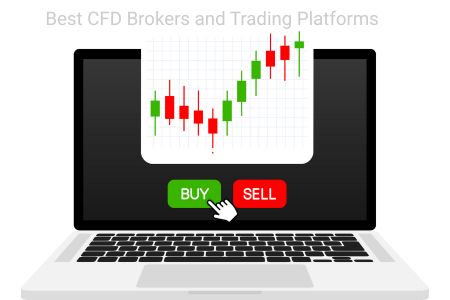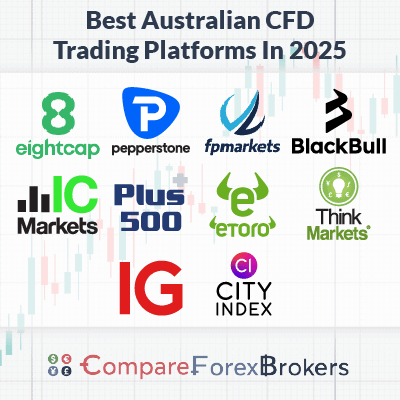
Contract for Difference (CFD) trading is a popular form of derivatives trading that allows investors to speculate on the price movements of various assets without owning the underlying assets themselves. However, due to the risks associated with CFDs, it’s crucial for traders to operate within a regulated environment. In this article, we will explore the best CFD trading regulations, highlighting key regulatory bodies and their importance for traders. For more insights into CFD brokers, visit best cfd trading regulations bestbrokercfd.com.
What are CFDs?
CFDs are financial instruments that allow you to trade on the price movement of an asset without actually owning it. Instead of buying a stock, for example, you enter into an agreement with a broker to exchange the difference in price from when the contract is opened to when it is closed. This trading method provides an opportunity to profit from both rising and falling markets. However, because of the leverage involved, trading CFDs can be risky.
The Importance of Regulation in CFD Trading
Regulation plays a critical role in ensuring that the CFD trading environment is safe and secure for investors. Regulatory bodies are responsible for enforcing rules that protect traders from fraud, ensuring fair execution of trades, and requiring brokers to maintain a certain level of transparency. Without stringent regulations, traders could be exposed to risks such as market manipulation and the insolvency of trading platforms.
Key Regulatory Bodies
Several regulatory bodies oversee CFD trading across different regions. Some of the most prominent include:
- Financial Conduct Authority (FCA) – United Kingdom: The FCA is one of the most well-respected financial regulators in the world. It requires brokers to adhere to strict rules concerning capital adequacy, client fund protection, and transparency. Brokers regulated by the FCA are required to segregate clients’ funds from their own, significantly reducing the risk of loss.
- Australian Securities and Investments Commission (ASIC) – Australia: ASIC is known for its rigorous standards. Traders dealing with ASIC-licensed brokers can benefit from a robust financial framework designed to enhance market integrity. ASIC also imposes limits on leverage, ensuring that traders do not take on excessive risk.
- Cyprus Securities and Exchange Commission (CySEC) – Cyprus: CySEC regulates many brokers that cater to European clients. It has established a system that allows for effective market supervision and the implementation of investor protection measures.
- Commodity Futures Trading Commission (CFTC) – United States: The CFTC governs futures and options markets, but it also has a role in regulating associated leveraged trading products, including CFDs. They emphasize transparency and protect traders from fraud.
Comparison of CFD Regulations
When comparing CFD regulations globally, several factors come into play. Below is a breakdown of some of the most important aspects:
| Regulatory Body | Region | Deposit Protection | Leverage Limits | Market Access |
|---|---|---|---|---|
| FCA | UK | Up to £85,000 | 1:30 | Global markets |
| ASIC | Australia | Up to AUD 250,000 | 1:30 | Global markets |
| CySEC | Cyprus | Up to €20,000 | 1:30 | European markets |
| CFTC | US | None | 1:50 | US markets only |
Benefits of Trading with Regulated Brokers
Choosing a broker regulated by a reputable authority offers numerous advantages:
- Investor Protection: Regulatory bodies often have funds set up to compensate traders in the event of broker insolvency.
- Transparency and Fairness: Regulations ensure that brokers operate transparently, providing you with clear information regarding fees, trading conditions, and risks.
- Recourse for Disputes: In case of issues, regulated brokers offer a clear pathway for complaints and dispute resolution.
- Education and Resources: Regulated brokers often provide educational resources to help traders understand market dynamics and make informed decisions.
Challenges and Considerations in CFD Trading Regulations
While regulation offers numerous benefits, there are also challenges associated with it:
- Increased Compliance Costs: Brokers must adhere to strict regulations, which may result in higher trading costs for clients.
- Limited Leverage: Many regulatory bodies have imposed limits on leverage to protect retail traders, which can restrict potential profits.
- Market Accessibility: Traders may find limitations in accessing products or markets depending on the jurisdiction of the broker.
Conclusion
Understanding and navigating the landscape of CFD trading regulations is essential for any trader looking to engage in this market. By choosing brokers that adhere to the best practices set by reputable regulatory bodies, traders can enjoy a more secure trading experience. Whether you are a novice trader or an experienced investor, being informed about regulatory practices not only protects your investments but also enhances your trading opportunities. Always ensure that your chosen broker is regulated and compliant with the standards of the region you are trading in. By doing so, you stand a better chance of succeeding in the dynamic world of CFD trading.


